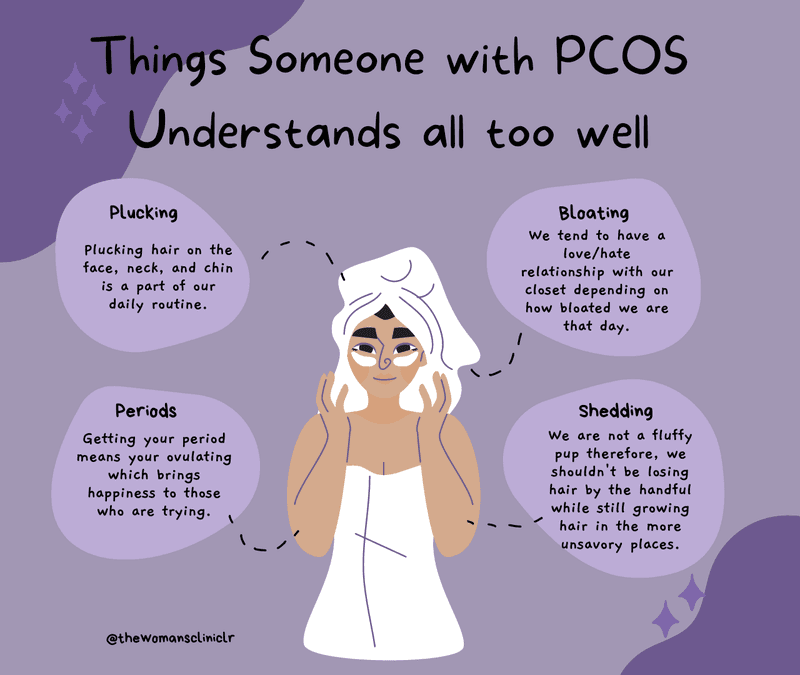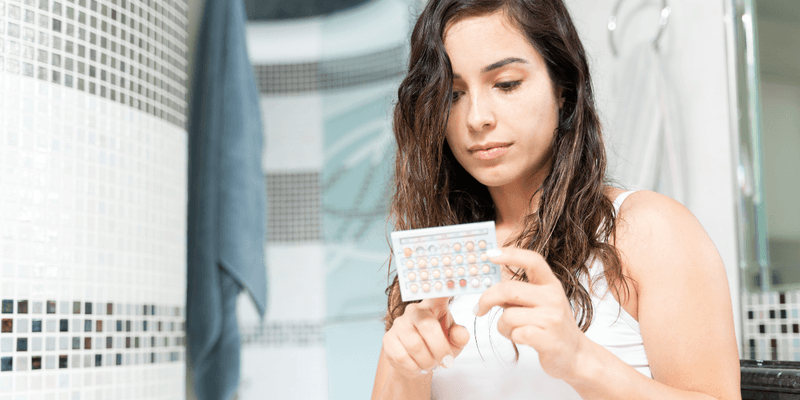If you’ve been diagnosed with Polycystic Ovarian Syndrome (PCOS), you may be concerned about your ability to conceive. Polycystic Ovarian Syndrome is one of the most common causes of infertility in women. Luckily, it’s also a treatable condition. Read on to learn more about PCOS, infertility, and your treatment options after diagnosis.
What Is Polycystic Ovarian Syndrome?
Polycystic Ovarian Syndrome (PCOS) is a hormonal disorder that directly affects your body’s ability to ovulate. It’s an extremely common condition that affects up to 20% of women who are of reproductive age.
What Causes Polycystic Ovarian Syndrome?
Doctors don’t know exactly what causes PCOS, but research indicates that genetic factors may be at play. Having a sister or mother with PCOS greatly increases your risk of developing the condition.
Excess insulin production may also play into PCOS. Insulin is a hormone that helps your body convert sugar into energy your body can use. Women with PCOS often have insulin resistance as well, indicating that the hormone imbalance affects multiple areas of the body. An increase in insulin production also often leads to an increase in testosterone production. Too much testosterone is a contributing factor in PCOS symptoms.
What Causes Infertility With PCOS?
During a normal menstrual cycle, your hypothalamus and pituitary glands release the hormones that stimulate follicle and egg growth. Follicles are microscopic cysts that grow on the surface of the ovary. Your body’s production of estrogen, along with other hormones, is what prompts the growth of an egg inside that follicle.
There are multiple eggs present in multiple follicles. In a normal menstrual cycle, one egg is released during ovulation while the others are reabsorbed by the body. This is known as atresia.
Polycystic Ovary Syndrome causes an imbalance in the hormones that aid egg production and maturation. This means that women with PCOS often have many more follicles than usual, but those follicles don’t ovulate. Since no egg is released to be fertilized there can be no pregnancy.
PCOS can also cause an increase in testosterone production which may prevent the lining of your uterus from developing properly. This makes it difficult for an egg to implant properly and/or receive the nourishment it needs to mature.
These fluctuations can also cause irregular periods and ovulation, which can make it difficult to get pregnant.
PCOS Symptoms
The symptoms of Polycystic Ovarian Syndrome may occur at any age within your reproductive years. They may vary in intensity over time as your hormones fluctuate. Some of the most common PCOS symptoms include:
- Irregular periods
- Ovarian cysts
- Acne
- Darkening skin
- Skin tags
- Abnormal hair growth on your chest, back, or face
- Weight gain
- Symptoms of depression
- Hair loss or thinning hair
- Infertility

If you are diagnosed with PCOS, you may experience any, all, or none of these symptoms. Everyone responds to hormonal fluctuations and imbalances differently. You can try to balance the fluctuations with supplements such as, a Myo-Inositol & D-Chiro Inositol Blend, as well as an increase in magnesium, omega 3’s, and zinc.
You can control the effects of PCOS on your body by using these home remedies easily. Since no medicine or operation can cure this disease permanently, you should focus on combating the effects. Focus on what you can control, to the best of your ability.
Focus on your diet and exercise. Find a balance that works for you— slow and steady will win the race here. Fad diets and instant ‘fixes’ will not. But with whatever you choose, keep your hydration at the top of your list. Not only will it help with your diet but also your hair and skin. The H2O Capsule 2.2L Half Gallon Water Bottle can help you keep track of your daily water consumption.
Change up your hair routine. Let’s face it, it can be a real disheartening and frustrating struggle to have hair growing in places you’d rather it not and thinning where you rather it stay. It’s a cruel and unusual symptom but luckily it is manageable with time and patience. If your scalp is thinning and dry consider adding in a serum treatment such as the VEGAMOUR GRO Hair Serum or the hers Hair Regrowth Treatment for Women with 5% Tropical Minoxidil Foam If you cannot afford the luxury that laser hair removal treatments can provide, consider an at-home IPL device treatment instead. The FDA cleared Braun IPL Hair Removal Silk Expert Pro 5 PL5137 or the Philips Lumea SC1998/00 can help slow the growth of that pesky unwanted body hair. An at-home treatment may take longer to show optimal results than a full-powered salon treatment laser, but many have seen the desired result after continual use.
Treatment Options for Polycystic Ovarian Syndrome
If you are diagnosed with Polycystic Ovarian Syndrome, don’t panic. While there is no cure for PCOS, there are treatments available that can help you manage the symptoms–including infertility.

Lifestyle Changes
One of the easiest and least invasive treatment options for women with PCOS is to make small life changes. For some women, losing weight and increasing exercise can help return hormone balances to normal and combat the symptoms of PCOS.
If you have diabetes, it is vital that you get it under control because overproduction of insulin has been directly linked to PCOS. Talk to your doctor about appropriate diet changes or, if necessary, medications to help you get your diabetes under control. This will help you get pregnant and carry the baby to term healthily.

Birth Control Pills
One of the most common treatments for PCOS is hormone regulation through birth control pills. Since the symptoms of PCOS are caused by a hormone imbalance, using estrogen and progestin-based birth control pills can help regulate your menstrual cycle and lessen your symptoms.
Your reaction to synthetic hormones is unique to your body chemistry, so you may have to try a few formulations of pills to find the right one. Some people respond better to progestin-only pills while others see better results with combination pills.
You will take the prescribed pill for 2-3 weeks a month for about 2 months to monitor results and balance your hormone levels. This should help regulate your period. However, if you are actively trying to become pregnant, your doctor will likely recommend a different form of treatment.

Ovulation Stimulators
If you are struggling to become pregnant with PCOS, your OBGYN may recommend ovulation stimulators like Clomiphene. Clomiphene is an anti-estrogen drug that you will take at the beginning of your regular menstruation cycle. It may seem counterintuitive, but too much estrogen can be bad for your fertility because it can prevent egg maturation in your follicles.
If clomiphene doesn’t help, your doctor may recommend metformin next. Metformin is a diabetes drug that helps regulate insulin production.
If neither of these treatments is effective, there are also certain follicle-stimulating hormones (FSHs) that may help your body produce an egg during ovulation.

Ovarian Cystectomy
If your PCOS is causing the growth of painful or dangerous ovarian cysts, your OBGYN may recommend an ovarian cystectomy. This is a laparoscopic and minimally invasive procedure that removes ovarian cysts from your ovaries.
Most ovarian cysts resolve on their own and do not require surgical removal. However, some women with PCOS develop particularly large cysts which can cause severe abdominal pain and potentially damage the ovaries. Talk to your OBGYN about your treatment options.
Talk To Your OBGYN About Your Infertility Options
If you have been diagnosed with Polycystic Ovarian Syndrome or you have the symptoms of PCOS, talk to your OBGYN about your treatment options. It can be difficult to become pregnant with PCOS, but it is far from impossible. There are many fertility treatment options available for women with PCOS.
Make an appointment with one of our experienced and compassionate OBGYNs to discuss your infertility treatment options today.


